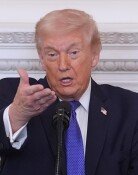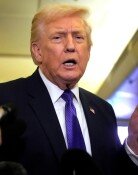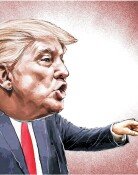Will Kim Jong Un’s diplomacy derail denuclearization efforts?
Will Kim Jong Un’s diplomacy derail denuclearization efforts?
Posted January. 11, 2019 07:48,
Updated January. 11, 2019 07:48
North Korea’s state-run Korean Central News Agency reported Thursday that North Korean leader Kim Jong Un and Chinese President Xi Jinping had an in-depth discussion on the issue of "joint research" into the denuclearization process and the situation on the Korean Peninsula. The news agency also said that Xi supported what he called North Korea's "reasonable" demands in denuclearization talks and that agreed issues of Pyongyang’s interest should be resolved. The report is viewed as Pyongyang’s intention to draw China into future negotiations between Pyongyang and Washington.
The North Korean state media’s announcement was not included in Chinese reports, suggesting that while China is cautious about the United States’ wariness against Beijing interrupting U.S.-North Korea negotiations, Pyongyang expects China to become its reliable supporter. Beijing also implicitly wants to play such a role. When U.S.-North Korea talks got into full swing last year, China attempted to exercise its influence, claiming its status as an interested party in the Korean Peninsula issues, shifting from its previous position that denuclearization was a matter between Washington and Pyongyang.
Of course, it would be difficult to seek to resolve the Korean Peninsula issues without involving China. It is impossible to exclude China, which is a signatory to the Armistice Treaty that halted the 1950-1953 Korean War, from discussions for establishing a peace regime on the peninsula. If China has greater voices in the U.S.-North Korea negotiations, however, Pyongyang could make outrageous demands with Beijing’s backing. It is also possible that the Korean Peninsula issues could be reduced to nothing but subjects of strategic negotiations between the two great powers. It was because of such a limit of multilateral negotiation framework that the six-party talks chaired by China for the North’s denuclearization went nowhere.
Kim Jong Un is dreaming about playing leading roles in summit diplomacy again in 2019 with China’s backing. South Korean President Moon Jae-in is also helping Kim. At his New Year’s news conference on Thursday, President Moon projected that the North Korean leader will visit Seoul after the second U.S.-North Korea summit. Moon went on to say that inter-Korean economic cooperation would be “blessing” for South Korea and “provide a new, epochal growth engine that revitalizes our economy.” Although the president mentioned that inter-Korean economic cooperation cannot be started immediately because of international sanctions, we wonder whether he is already fanning expectations.
What Kim Jong Un wants is probably to repeat the diplomatic rounds that started early last year and continued until the June 12 summit with Trump. Having secured China’s support and South Korea’s cooperation, he seems to want to negotiate with the U.S. If Seoul and Beijing go too far to encouraging him to become arrogant, his diplomacy could end up becoming nothing but a diplomatic show that deviated from the goal of Pyongyang’s denuclearization. Just as the U.S.-North Korea negotiations went nowhere during the second half of last year showed, we cannot afford to repeat such a diplomatic failure.







